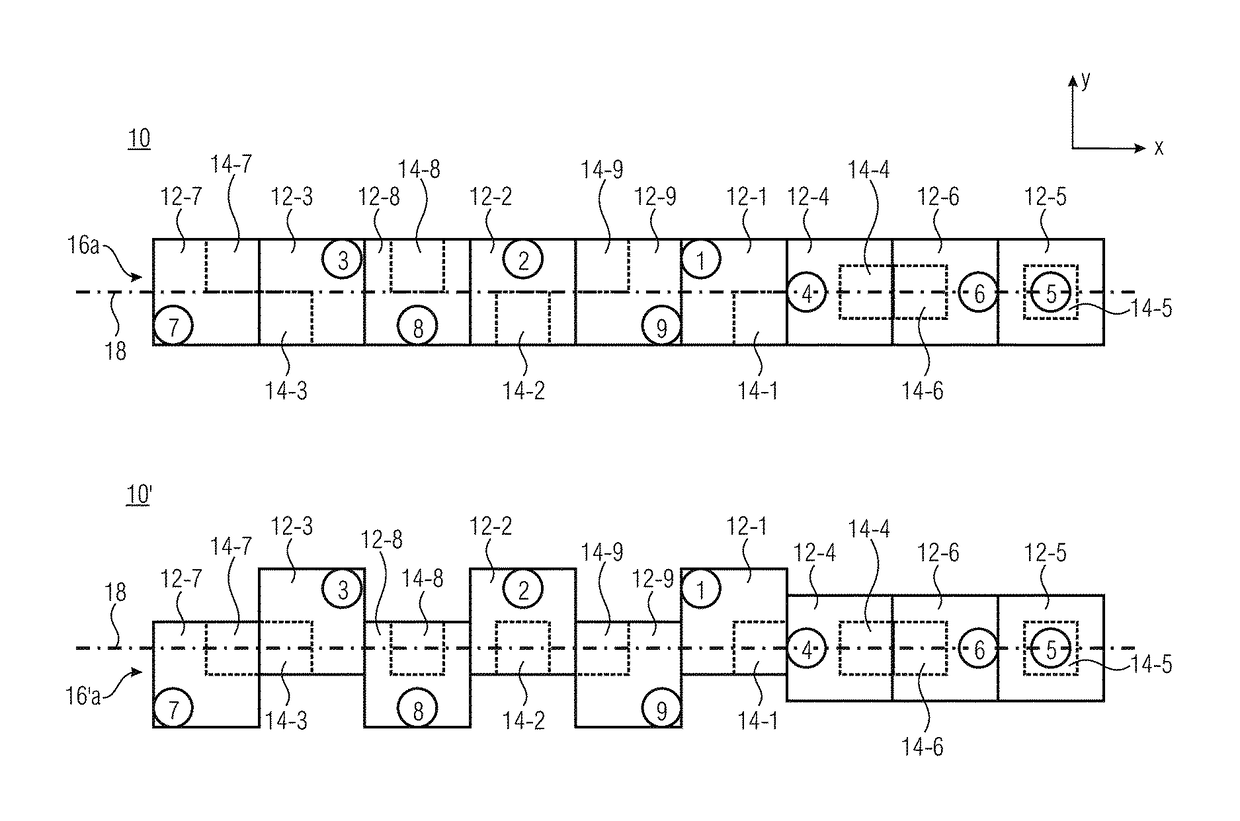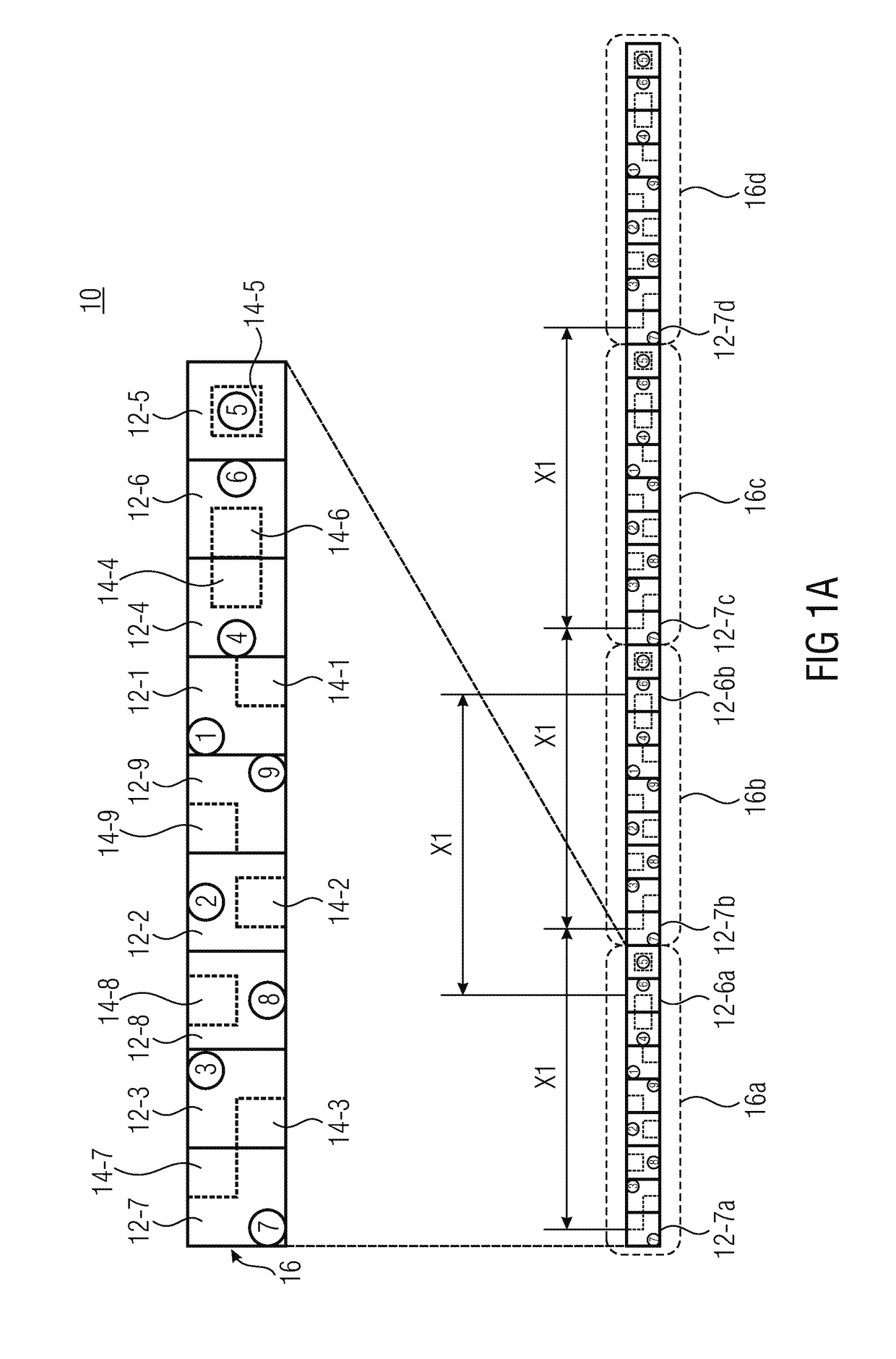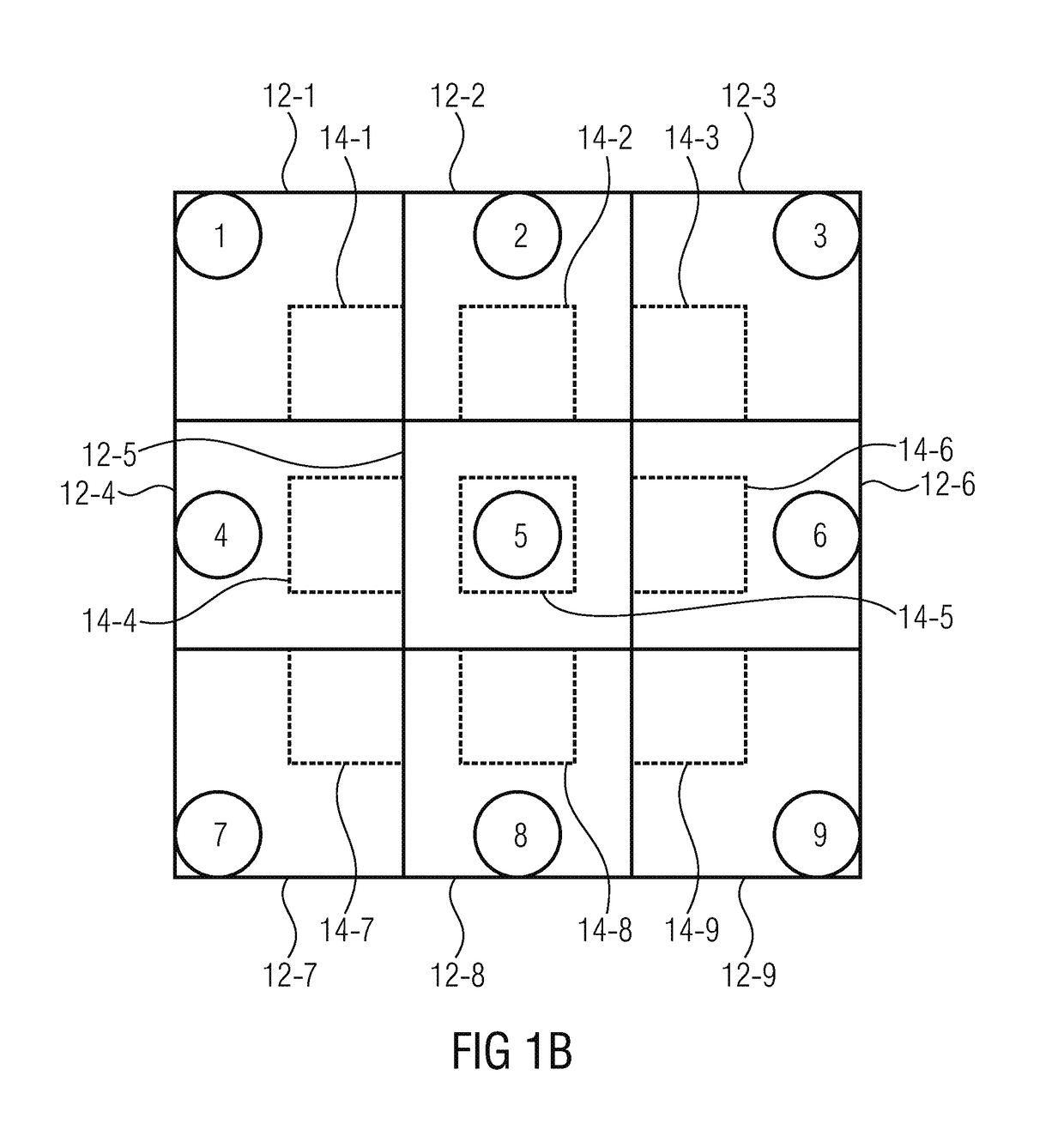Multi-aperture device and method for detecting an object region
a multi-aperture device and object technology, applied in the field of multi-aperture devices and methods for detecting objects, can solve the problems of small depth information between the individual channels of array cameras, counter-active, and inability to accurately detect objects, so as to improve the depth resolution of the object field, the effect of miniaturizing the image detecting device and great lateral distan
- Summary
- Abstract
- Description
- Claims
- Application Information
AI Technical Summary
Benefits of technology
Problems solved by technology
Method used
Image
Examples
Embodiment Construction
[0040]Before discussing in greater detail below embodiments of the present invention referring to the drawings, it is pointed out that identical elements, objects and / or structures or those of equal function or equal effect are, in the different figures, provided with same reference numerals such that the description of these elements illustrated in different embodiments is mutually exchangeable or mutually applicable.
[0041]In the following discussion, a multi-aperture device is to be understood to be a device for optically detecting an object region, like an image. The multi-aperture device may, for example, be a camera configured to detect an image with several pixels. The multi-aperture approach allows a compact setup of the device. A pixel may, for example be detected by a charge-coupled device (CCD) or a complementary metal oxide semiconductor (CMOS) image sensor. The image sensor may comprise one or several image sensor regions which may be arranged in one or several image con...
PUM
 Login to View More
Login to View More Abstract
Description
Claims
Application Information
 Login to View More
Login to View More - R&D
- Intellectual Property
- Life Sciences
- Materials
- Tech Scout
- Unparalleled Data Quality
- Higher Quality Content
- 60% Fewer Hallucinations
Browse by: Latest US Patents, China's latest patents, Technical Efficacy Thesaurus, Application Domain, Technology Topic, Popular Technical Reports.
© 2025 PatSnap. All rights reserved.Legal|Privacy policy|Modern Slavery Act Transparency Statement|Sitemap|About US| Contact US: help@patsnap.com



